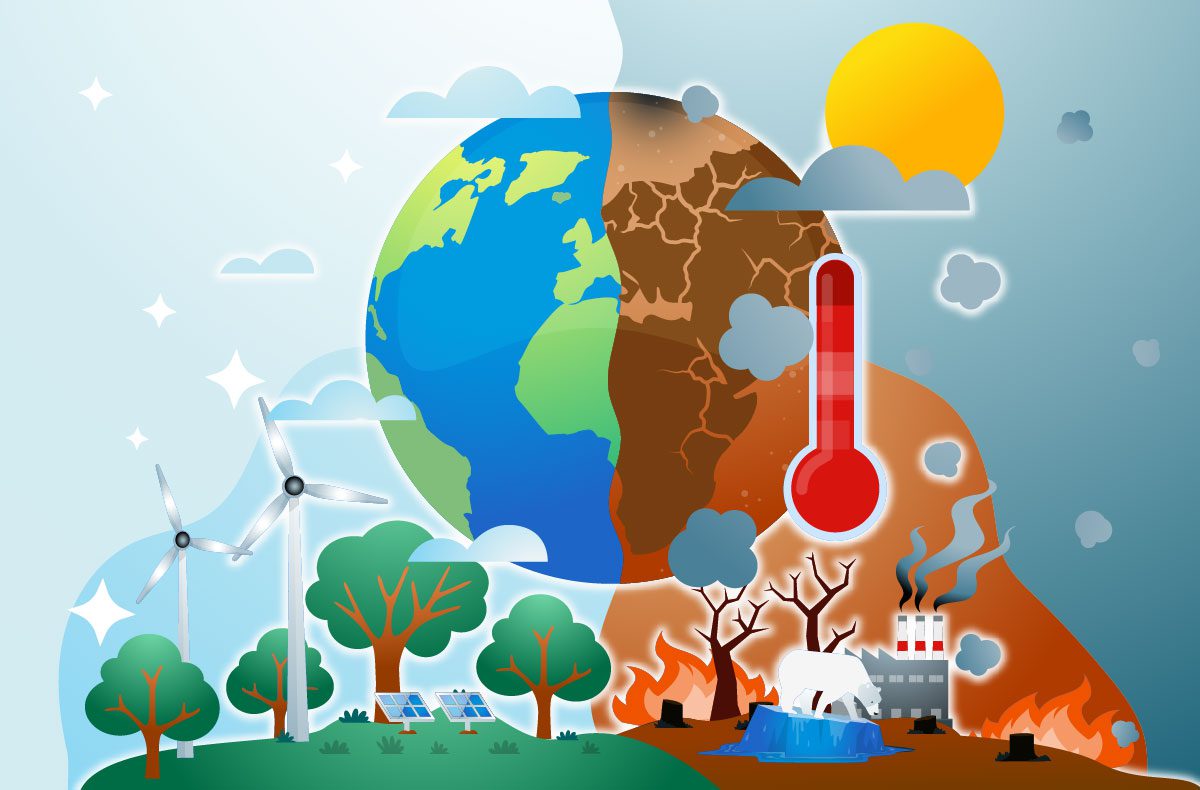
Illustration by Sarameeya Aree
If you’re a CEO focused on growing your bottom line, or a politician focused on winning your next election, you might see energy as a line item on your P&L or climate change on your list of issues to talk about. You might also find the words “diversity, equity and inclusion” in the new set of keywords your staff say to use often to boost your clicks and brand. They’re right, but that just scratches the surface of what to prepare for and take seriously, or risk being left behind.
No matter what industry you’re in, no matter what kind of job you have or work you do, there’s a force transforming the economy that you may not be aware of but that will undoubtedly affect your bottom line in myriad ways—even if you’re retired, a stay-at-home parent or caregiver, or are a solopreneur. It’s innocuously called ESG, for environmental (E), social (S) and governance (G), and it is a series of market forces and regulations that are quietly transforming the economy.
Mother Nature is the primary “E” forcing mechanism, since climate change does not wait for anyone or a political party to prepare. The extraordinary number of massive extreme weather events in the U.S. alone—hurricanes, droughts, floods and wildfires— cost $2.475 trillion since 1980, according to NOAA. The massive shift in the workplace is another part of this “E,” with 50% of employees working hybrid and 30% working remotely, according to a Gallup 2022 study.
These yield tremendous opportunities as well—new career paths, new business opportunities, new markets.
Signs this transformation is happening now
A new set of financial, management and policy priorities are being embedded into the very fabric of financial and regulatory systems across the economy, and by extension into all management systems, even those that may seem unrelated.
It’s happening now because of the convergence of the trifecta of climate change, Covid, and the resurgence of social equity movements—and the ferocity of each. It’s being shoved into our economy—previously nudged, but now with significantly stronger muscle—by Mother Nature constantly reminding us that we need to act immediately to save the planet, by the marketplace demanding sustainable practices, and by new regulations and financial incentives, such as in the Inflation Reduction Act in the United States and others across the globe. The European Union’s climate law requires EU countries to cut their emissions by 55% by 2030.
The U.S. Securities and Exchange Commission (SEC) issued proposed climate risk disclosure rules last year because investors have been clamoring for them for years, to untie the knots of the alphabet soup of current related frameworks and standards. On my Electric Ladies Podcast, Kristina Wyatt told me: “The climate emergency is urgent and climate risk is financial risk. And the SEC is all about the protection of investors and the financial markets…and if you have this looming financial risk, that’s not being adequately addressed,” the SEC must act. She added, “investors were saying, ‘look, the information that we’re getting just doesn’t cut it. It’s not sufficiently clear, consistent, comparable, reliable. We need more and we need the SEC to step in and provide clearer guidance, clearer rules to help ensure that investors are getting the information that they need.” Wyatt led the task force developing these climate rules at the SEC as Senior Counsel for Climate and ESG to the Director of the Division of Corporate Finance, and now she’s SVP of Global Regulatory Climate Disclosure and Deputy General Counsel at Persefoni.
A quiet, deep and profound force
It’s happening subtly, through reporting and disclosure demands on the “E, the “S” and the “G.” The “E” is for environment: this includes the organization’s environmental impact, such as its carbon emissions, water and energy use, waste management, and land use. It’s also the impact of climate change on the organization’s bottom line and stakeholders. E is also the workplace environment, which Covid reminded us about. ESG is about impact, risk, and accountability.
The ”S” takes into account all the organization’s stakeholders: employees, customers, suppliers/vendors, investors/shareholders, the communities in which the organization operates, and society at large. For example, PwC found that 83% of consumers think companies should be actively pursuing ESG values, and 86% of employees want to work for companies that adhere to ESG-related values. Many business contracts demand proof of these data points as well. An SEC Newgate ESG Monitor study found that cost is not an issue for consumers either: “46 percent said they would be prepared to pay more for better ESG performance, despite the cost-of-living pressures being felt around the world.”
The “G” is about accountability and transparency in the organization’s governance. How well does it comply with all regulations? Are there any cases of corruption or scandal or malfeasance? How well does the board represent the stakeholders and govern itself and management, including who sits on it? How do the compensation systems align with its stated values and goals?
The profound shift is that the ESG economy puts people and planet at its core, equal to profit, not secondary, and it demands receipts, proof, metrics that are verified by an independent third party. No hiding. No greenwashing.
One sign it’s having a profound impact: pushback
One sure indication that any policy or regulation is working is pushback. If the policy is not a threat or not being taken seriously, there’s no fuss about it. After the SEC released its proposed climate risk disclosure rules in March 2022, they received over 14,000 comments and lots of op-eds by various individuals opposed to them.
People can resist all they want, but that won’t stop Mother Nature or the markets’ demands.
The shift is underway, and it’s a question of whether an organization or country will leverage it to their and their peoples’ benefit, or be left behind.


